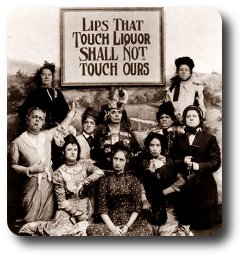Saturday 30 October, 5.15pm until 6.30pm, Henry Moore Gallery
 Alcohol is so rooted in Western culture that it has a place at almost every social event, from weddings and dinner parties to art openings and sporting occasions. As Kingsley Amis once wrote, ‘conversation, hilarity and drink are connected in a profoundly human, peculiarly intimate way’. Yet today alcohol is more likely to be discussed in terms of its damaging effects on health, its association with domestic violence and other criminal activity. It has been estimated that drink is a factor in 15% of drownings, 65% of suicides and 40% of domestic abuse. It is also allegedly responsible for 17 million lost working days a year, worth about £20bn to the economy. Do the social pleasures of drinking still outweigh the disasters that may occur if we have one, or ten, too many?
Alcohol is so rooted in Western culture that it has a place at almost every social event, from weddings and dinner parties to art openings and sporting occasions. As Kingsley Amis once wrote, ‘conversation, hilarity and drink are connected in a profoundly human, peculiarly intimate way’. Yet today alcohol is more likely to be discussed in terms of its damaging effects on health, its association with domestic violence and other criminal activity. It has been estimated that drink is a factor in 15% of drownings, 65% of suicides and 40% of domestic abuse. It is also allegedly responsible for 17 million lost working days a year, worth about £20bn to the economy. Do the social pleasures of drinking still outweigh the disasters that may occur if we have one, or ten, too many?
Cheap alcohol has been blamed for encouraging a culture of binge drinking, and the authorities are cracking down on supermarket deals and nightclub offers. Whole areas of many towns and cities have been designated ‘no drinking zones’, with the police empowered to confiscate alcohol without having to give a reason. And it has become routine for adults well over 18 to be asked for ID when buying drink. So are we seeing a ‘denormalisation’ of alcohol, a shift from seeing alcohol as part of everyday life to a dangerous drug to be approached with caution? Earlier this year, the National Institute for Health and Clinical Excellence issued new guidelines urging GPs to quiz patients routinely about their drinking habits. Are these welcome changes, or is there something to be said for a ‘drinking culture’?
Scientists led by David Nutt at Imperial College are developing synthetic alcohol, which creates the sensation of feeling a little tipsy without the associated health risks. Do we need such an alternative to alcohol? Or does the idea of consequence-free drinking miss the point: is the potency of alcohol, and the fact that its use has traditionally been limited to adults, actually part of the appeal? Perhaps changing attitudes to drink reflect changing attitudes to adulthood. Are we becoming more enlightened, or more puritanical? Are we witnessing the rise of a new prohibitionist mentality in the UK, or simply a sensible response to a better understanding of the dangers of drink?
Listen to session audio:
 | Professor Virginia Berridge director, Centre for History in Public Health, London School of Hygiene and Tropical Medicine |
 | Dr Michael Fitzpatrick writer on medicine and politics; author, The Tyranny of Health |
 | Professor Mike Kelly director, Centre of Public Health Excellence, National Institute for Health and Clinical Excellence (NICE) |
 | Kristin Wolfe head of alcohol policy, SABMiller |
| Chair: | |

|
Suzy Dean
freelance writer; blogger, Free Society |
Drinkaware campaigns totally ignore the social benefits of drinking, vilifying the majority of adults. They stifle the integration of young people into a socially acceptable drinking culture while also reinforcing the behaviour they attempt to challenge.
Suzy Dean, Independent, 1 October 2010ID checks serve primarily as a bureaucratic hurdle to buying alcohol, almost in the same way you need a licence to buy a gun. The implication is that there is something sordid about it, that buying alcohol is not a normal transaction, but one requiring special permission or dispensation.
Dolan Cummings, Manifesto Club, 2 September 2010Alcohol should not have a special status among narcotics. We need to toughen up on booze and lighten up on other drugs
James Meek, Guardian, 29 August 2010Some of Scotland’s most popular nightlife haunts face a ban on any future pubs, clubs or off-sales under groundbreaking new plans to be in force by the end of the year.
Gerry Braiden, Herald, 27 August 2010Politicians seem not to realise that civilised drinking is the product of social regulation, not official regulation.
Josie Appleton, The Times, 13 August 2010The government puts off a decision on introducing minimum price for alcohol in England and Wales, as public health officials warn cheap drink is bringing a public health crisis in the North East of England.
Nick Martin, Channel 4, 19 March 2010Concluding that the history of temperance offers many options for the present, this report explores the culture of drinking, and how it could be changed. In the past, temperance helped create an ethos which would now be called ‘social capital’. The report explores whether this culture can be brought up to date.
Virginia Berridge, Joseph Rowentree Foundation, 25 November 2005There has been a creeping introduction of alcohol bans in public spaces all around the UK .We believe public space should be exactly that - a place where we can come together as a public - to argue and campaign, to pursue our common goals, to chat with friends and socialise.
Manifesto Club